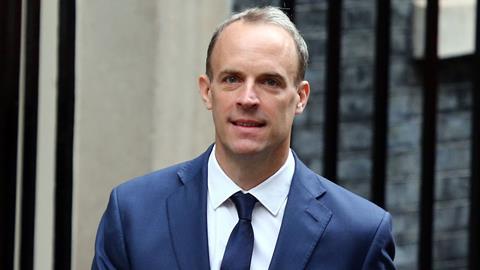Should we give our judges new powers to strike down laws that violate fundamental liberties? That’s one of the proposals in a fascinating book I was reading last week. The author, a former government lawyer, suggested ‘entrenching a limited number of core rights’. Once parliament had passed the necessary legislation, he argued, ‘it would be much more difficult for governments to pass knee-jerk, reactive or populist measures that do not withstand serious scrutiny’.

This is pretty radical stuff. But the author was responding with weary frustration to what he saw as 11 years of government attacks on our core freedoms. He devotes the first half of his book to examples of ‘repressive legislation’, attacks on our justice system that had ‘singularly failed to make Britain safer’ and ‘intrusive inroads made by the increasingly omnipresent and prying eye of the state into the private lives of British citizens’.
And who is the lawyer who suggested it should be made ‘much less easy for parliament to override our fundamental freedoms on a political whim’? It is, of course, our new lord chancellor and secretary of state for justice, writing in 2008 about the Labour governments led by Tony Blair and Gordon Brown. The Assault on Liberty was published by Dominic Raab in 2009, the year before his party regained power and he was first elected to parliament. After 11 years of Conservative-led government, it will be interesting to see whether he still supports limits on legislative powers.
No need for those, I am sure he would tell us. His most apocalyptic predictions – indefinite detention without trial, compulsory ID cards and the withering away of jury trial – did not come to pass. Others, such as increased surveillance and a web of interconnected databases, were supported by governments in which he served.
But what his officials are no doubt wondering is whether the justice secretary still favours fundamental human rights reforms. A ‘British bill of rights’, he wrote in 2008, ‘would help bridge the democratic deficit generated by the seemingly endless judicial legislation emanating from Strasbourg.’ His concern is that the human rights court has treated the European convention as a ‘living instrument’, developing it in ways that few people in the UK could have expected.
Raab intended his proposals to strengthen judicial power while refocusing it on core rights. ‘Judges would not be creating new rights,’ he insisted, ‘just applying those already set out by our democratically elected parliament.’
It is easy to pick holes in this argument. When judges apply existing laws to new circumstances, they inevitably create new rights. Under Raab’s proposals, laws made under his bill of rights might become entrenched. If the judges purported to be applying human rights, a larger-than-normal parliamentary majority would be required before the government could overturn unwanted rulings.
But how practical is any of this? Consulting the public on what a British bill of rights might include, drafting the necessary legislation and getting it through parliament would take a couple of years or more. It seems unlikely that the government would want to clutter up the last session of the current parliament with a bitter battle over something so esoteric. Given the rapid turnover of Conservative justice secretaries – Raab is the eighth in little more than 11 years – I can’t see him getting a bill of rights into law.
However, an independent review of the Human Rights Act led by the retired judge Sir Peter Gross will be reporting to Raab this month. One option Gross will explore is amending section 2, which says UK judges ‘must take into account’ any decision of the Strasbourg court.
What worried Raab in 2008 is that our judges must take into account rulings in cases that did not involve the UK. Was that necessary, given that the human rights judges were not strictly bound by their previous decisions?
He acknowledged that no longer following their rulings might ‘increase the risk of some divergence between the Strasbourg court and UK courts in relatively marginal cases’. But there were ‘no risk-free alternatives’ while the UK remained a party to the human rights convention – which Raab has long supported.
The justice secretary could certainly invite parliament to change ‘must’ in section 2 to ‘may’. That might please his supporters. But, sooner or later, the current low level of UK defeats at the human rights court would begin to rise.
Raab argued in 2008 that ‘the practical repercussions for Britain of resisting Strasbourg’s more expansive rulings in comparatively less serious cases would be slight’. But breaking the UK’s treaty obligation to ‘abide by’ adverse rulings is an unattractive policy.
Human rights reform was not one of the priorities Raab listed at his swearing-in. But he did mention it in his first all-staff meeting. I had better not put his book back on the shelf quite yet.































